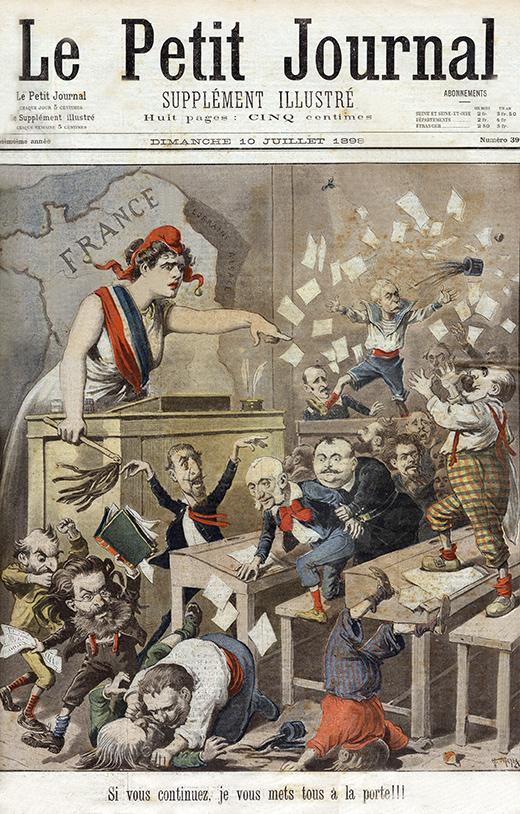
Paris, ca. 1887. Neurologist Jean-Martin Charcot Diagnoses New Cases of Hysteria
In the late 19th century, numerous cases of hysteria and mental disorders were diagnosed.
Hysteria (from the French hystérie, which comes from the Greek hysteron, "uterus") was considered a mental illness which manifested in patients in the form of distress and numerous other physical or psychological symptoms, such as seizures, paralysis, or hallucinations. Known as the father of modern neurology, Jean-Martin Charcot (1825–1893) published his research on hysteria in Lectures on the Diseases of the Nervous System (1879)
In a society in which female sexuality was harshly repressed, most cases of hysteria were diagnosed in women, leading the illness to be associated with their physiology, specifically the reproductive system, and utilizing science to enforce misogynist stereotypes.
Satirical frontpage of thenewspaper Le Petit Journal regarding the Dreyfus Affair, 1898. Getty Images.
